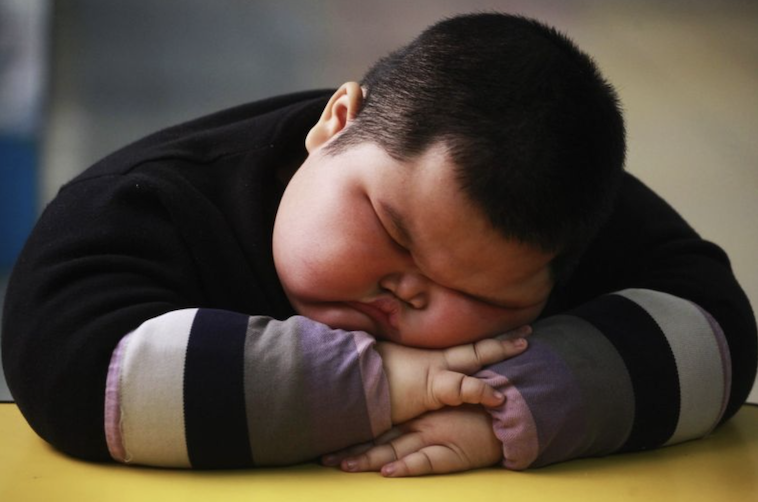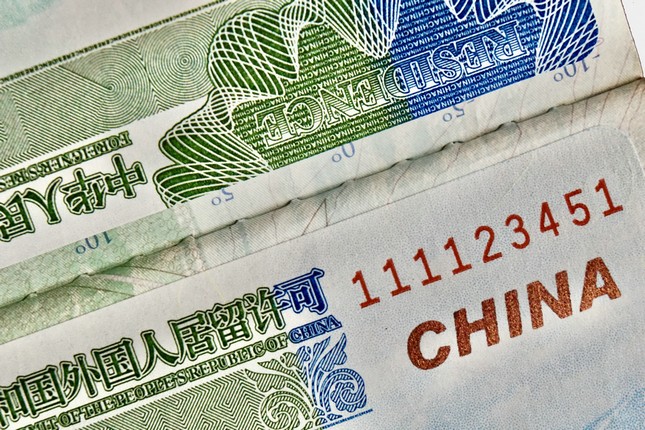On Monday, Beijing’s top public health bodies – along with the Ministry of Education and the General Administration of Sport – announced new national technical guidelines for the prevention and control of obesity in school children.
Studies have shown that at least 20% of Chinese children from the ages 6-17 are currently either overweight or obese.
In 2000, the figure was substantially below the global average at just 8.8%.
In May, Shen Hongbing – director of the Chinese Centre for Disease Control and Prevention – told an obesity science conference that more than 10% of children under the age of six are either overweight or obese.

Image via Caixin
Researchers at the School of Public Health of Peking University and the United Nations Children’s Fund predicted that if current trends continue, two out of five adolescents – approximately 58 million kids – in China will be overweight or obese by 2030.
China already has the largest number of overweight children in the world and is close to matching statistics from the Centers for Disease Control (CDC) in the US, which say around 20% of children are obese.
These numbers are based on the body mass index (BMI), which is a measure that relates body weight to height.
READ MORE: Are Chinese Grandparents to Blame for Obesity in Kids?
A BMI between 25 and 29.9 is considered overweight, while a BMI of 30 or higher is considered obese.
Being overweight is a condition of excessive fat deposits, while obesity is a chronic disease defined by excessive fat deposits that can impair health and lead to an increased risk of type 2 diabetes and heart disease.
Zhou Maigeng, deputy director of the National Center for Chronic and Noncommunicable Disease Control and Prevention at the Chinese Center for Disease Control and Prevention, said that the annual economic burden of these health problems could reach 49 billion by 2030.
To combat the problem, schools have been told to have at least one physical education class a day, increase awareness of healthy eating habits, hire qualified nutritionists, and use nutrition labels.

Image via AgencyChina
The guidelines also called for regular health screenings and health records for students with feedback from their parents.
Other suggested measures include a 20% tax on sugar-sweetened drinks, which follows advice from the World Health Organization.
In 2020, China set a goal to lower the amount of overweight and obese juveniles by 70% by 2030, and these new guidelines are Beijing’s latest way to encourage schools to help them reach the mark.
READ MORE: How Fat Camps Are Tackling China's Obesity Epidemic
For the latest China news stories, follow our official WeChat account, ThatsBeijing.
[Cover image via SCMP]






















0 User Comments